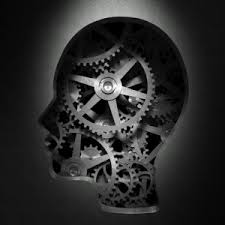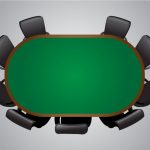In a post from a few weeks back, I outlined six items that I feel like cover most of the principles of performance as regards poker. In this week’s discussion, I’m going to look at the connection between points three and five on that list. We’re going to look at mindfulness in poker, how to train yourself to be more mindful, and how that increased level of mindfulness can help you to connect the issues that you have in poker to the issues that you have in the rest of your life. The end goal here is to give you some ideas to think about on your own regarding improving your performance at the game and in life.
Why Mindfulness Sucks
Mindfulness is an important part of Buddhism, and it’s become a bit of a buzzword over the past few years with people pimping it out in all sorts of ways to try to profit from talking about mindfulness in X, Y or Z field. Because of this, mindfulness kind of sucks because it’s gotten to the point that a lot of people don’t take it seriously. This is much like how many people think that meditation is just some new age junk that doesn’t have any scientific backing, though that’s in the decline since it’s been shown to drastically change the structure and functioning of your brain over time.
In short, mindfulness just means paying attention to something. In poker, we’re worried about being mindful about the present moment. Being able to maintain presence in what’s going on in front of you and inside of you right now is the most important thing that you can learn to do to improve at the mental side of poker. This rest of this week’s discussion is to show you how to do that in a practical way that you can start to put to use right away.
The Act of Paying Attention
One of the problems that a lot of people run into when they start to work on being mindful of what’s going on is that there’s just so much going on that they get overwhelmed. A great analogy that gets used a lot is that your mind can seem like a pool of water that you’re trying to look into. If there are a lot of waves and ripples at the top, it’s very hard to see what’s going on much deeper. However, if you calm down those ripples, then you get a much clearer idea of what’s happening. The point here is that if you want to make it easier to pay attention to how you’re feeling and what’s going on during a poker session, then you’ve got to figure out what the ripples are and what you can do to get rid of them.
Distractions are the best starting place for most people in most cases. When you remove unnecessary distractions like instant messenger programs, television or whatever other forms of involved entertainment, that’s a lot less of your mental capacity that’s been occupied by stuff that isn’t helping you with your game. Once that’s freed up, a lot of the ripples are gone, and you’re able to see more easily into what’s happening both internally (how you’re feeling, how prone you are to tilt, if you’re tilting) and externally (what’s happening at the poker tables).
When you decide to be present in what’s going on right now for you at the tables, you’re effectively looking at what’s going on and taking an inventory. This inventory will include everything that has a direct bearing on your decision-making process. The more junk you have that’s taking up your attention, the harder of a time you’re going to have paying attention to what matters.
Paying Attention is a Habit
Once you start really pushing hard to be mindful while at the tables, it’ll start to become a habit. Chances are that you’ll start becoming more mindful away from the tables as well. Because being present allows you to make better decisions with less stress, it’s kind of a no-brainer that you’ll start doing this more. However, something that you’ll start to find when this happens is pretty critical to the overall process of learning and improving at poker.
What you’ll start to learn is that the same things that cause you problems mentally in poker will also cause you problems in the rest of your life. In short, you’re bringing those mental flaws and tendencies with you to the poker table. This might seem obvious, but there’s something really awesome about this: You can use poker as a mental training tool to improve on those weaknesses, and the progress you make on them will carry over into the rest of your life.
+Life EV
If you really want to get into mindfulness on a deep level, it will definitely help your poker both in terms of tilting less and focusing more, but it will probably help the rest of your life even more than that. This is one of those few things that are really at the root of having a high performance in the game of poker, and everything that we have talked about so far in this series about the mental game of poker players ties into it. For people who want to go that direction, I would recommend that you start looking into different forms of meditation and see which form appeals to you.
However, if you’re not ready to make the jump into the deep end, then here’s what you can do in the meantime to get a lot of the benefits of staying present without having to change your viewpoint on life in the process. Every so often during your sessions, take a quick inventory of what’s going on with your mental state. Have you had any big winning or losing hands that might be influencing how you’re playing? Are you starting to feel mental fatigue? Do you have unnecessary distractions going? Address each of these questions as needed, and then continue on with your session if you decide to. Making this a habit is a great first step towards overall improved mindfulness in poker.
Submit your review | |







